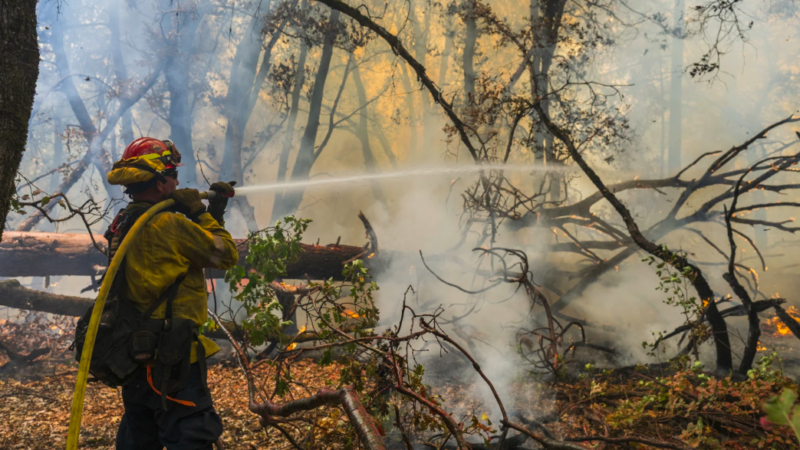
air, food & water, climate change, nature & conservation
Daniel Swain for The Associated Press—Fires in the West are becoming ever bigger, consuming. Why and what can be done?
UCLA climate scientist Daniel Swain spoke with The Associated Press about how decades of fire suppression and climate change have led to increasingly severe wildfires in the western U.S. and Canada. Swain notes that these fires now burn intensely through the night and extend fire seasons, emphasizing that today’s fires often prevent forest recovery, transforming ecosystems due to climate change. “The forest is not coming back in the same in the same way as it was in a lot of regions,” Swain said. He advocates for the reintroduction of controlled burns to manage wildfire risks, despite the challenges of modern landscapes.
